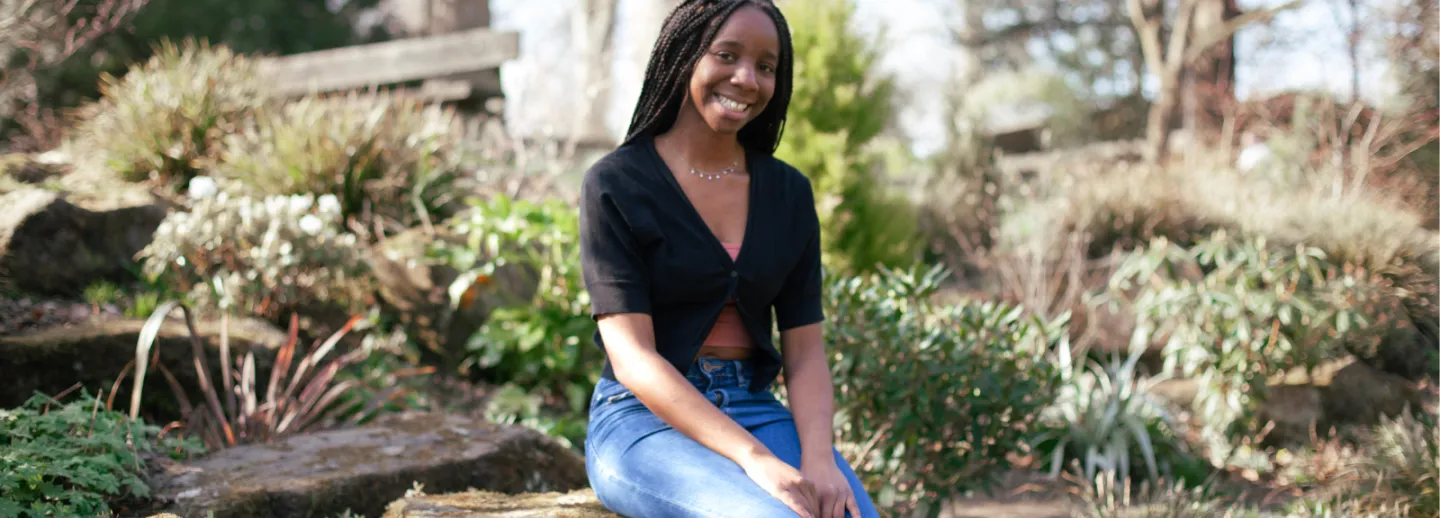Loading...

Blog Post
In 2020, WOW launched the Young Leaders Directory, connecting inspiring girls, young women, and non-binary activists from across the globe. Since then, 149 incredible young leaders have been part of this movement for change!
This October, we’re celebrating their achievements and sharing their stories to inspire you to take action for a gender-equal world.
Want to learn more? Follow us on social media and subscribe to our newsletter to hear about these amazing young changemakers and how they’re shaping a brighter future.
They’re changing the world. Will you?
My advice for aspiring young leaders and activists
By Amanda Amaeshi, Young Leaders Directory 2022, UK
As an award-winning young activist, my aim is to be more than just a role model or inspiration for other youth. This stems from the wise words of American political activist Angela Davis: “It is essential to resist the depiction of history as the work of heroic individuals in order for people today to recognise their potential agency as part of an ever-expanding community of struggle.” Everyone has a role to play in societal movements to help make the world a better place. Here’s my advice for those eager to make a positive societal impact!
Identifying key interests and goals
Begin by reflecting on the issues that resonate most with you. Consider what matters deeply to you and what change you want to see in the world. Once you’ve identified these key interests, think about the specific goals you want to work towards. Do some research to understand how these issues manifest in your local area, region, or country, and investigate any ongoing efforts to address them. Where possible, engage with people (or their works) who have lived experiences related to these issues; their perspectives can provide invaluable insight into the complexities involved.
It’s crucial to consider how these issues might disproportionately impact certain communities. Reflect on the concept of intersectionality – how different aspects of identity, such as race, gender, and class, intersect to create unique experiences of oppression or privilege. As you do this, challenge any biases or preconceptions or privileges you may have. This process of self-examination and learning will help you approach your activism with greater awareness and empathy, ensuring that your efforts are inclusive and effective.
Finding opportunities and building community
When seeking opportunities for activism, start by exploring as many different paths as you can. As you gain experience, you’ll begin to identify the areas that truly interest you, allowing you to specialise. This approach will also provide you with a rich variety of experiences to reference in applications and interviews.
Take time to look at the profiles of people who have careers similar to what you aspire to. Look at their experiences and volunteer activities, and see if there are any current openings. Over time, your engagement with these topics/people will help curate your social media feeds and connections, making it easier to discover relevant opportunities and stay informed about developments in your areas of interest.
Furthermore, seek out or create a community of like-minded individuals who share your goals. This could be either in-person or online. Building and strengthening bonds within such communities is essential for driving meaningful change. Community provides a vital space for learning from one another, offering support, and working collaboratively to take action.
Dealing with imposter syndrome
As the youngest member of Phase Two of the First Minister’s National Advisory Council on Women and Girls (NACWG), I sometimes struggle with imposter syndrome. However, I remind myself that I was chosen for a reason – my advocacy work and lived experiences as a young Black woman in Scotland are valuable. I should not expect myself to know everything; after all no one knows everything! It’s essential to speak up when I’m unsure, not only because others might feel the same, but simply because I deserve to be able to understand what’s going on. To show up as myself – knowledgeable and experienced and able to positively contribute to NACWG’s work, yet also willing to further learn and sharpen my skills and knowledge, in a truly supportive environment of incredible women – is infinitely better than not showing up at all.
I mustn’t be my own worst enemy. Please don’t allow yourself to become your own worst enemy. Give yourself credit for how far you’ve come. Keeping everything in perspective is what’ll allow you to continue doing your work to the best of your ability, for your own benefit and also the benefit of the whole world.
Resisting apathy
Despite the challenges you may face as young people or due to other aspects of your identity, it’s crucial to stay focused and resist apathy. Celebrate every victory, no matter how small. Although societal structures that perpetuate systemic oppression might make it seem like change is impossible, don’t give in to that belief. These systems thrive on making you feel powerless so that the status quo can continue. Resist the urge to give up (although be sure to protect your mental health by taking breaks – and not feeling guilty for doing so – and by having a strong support system of friends and allies). Keep sight of your goals and the people who stand to benefit, especially the most marginalised. By building community bonds and organising, real lasting change is possible.